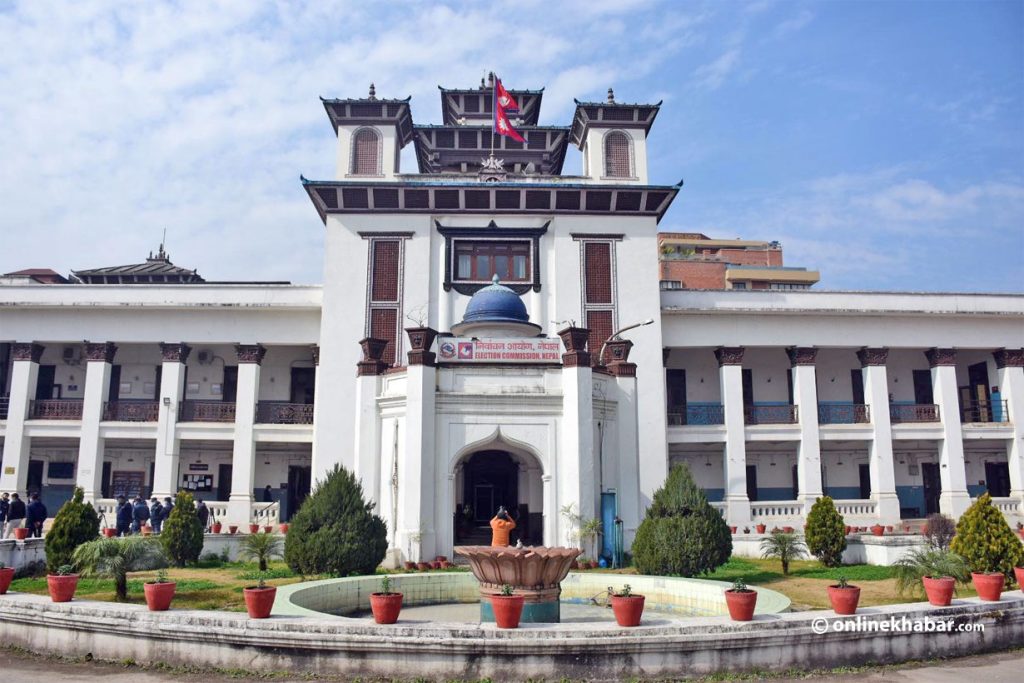

Almost all the political parties are scrambling to woo the electorate in their support ahead of the November 20 election to the House of Representatives and Province Assembly.
They are primarily raising issues related to political stability, good governance, prosperity and law and order in the course of their election campaigns. However, these issues figured in the election agenda of the parties in the last elections as well.
The political parties have also included in their election manifestos topics like protection of nationalism, national sovereignty, building a self-reliant economy, increasing employment, infrastructure development, citizenship and issues related to religion and culture.
In this connection, the Nepal Ko Lagi Nepali (Nepalis for Nepal) Party has vociferously raised the issues of banishing corruption and promotion of the ‘Prithvi Path’ and ‘Nepalwad’. According to this party, Prithvi Path is the principles propounded by King Prithvi Narayan Shah, the unifier of modern Nepal, and Nepal What is the policy of Nepal first, said the party president Bal Krishna Neupane.
Nepal Ko Lagi Nepali Party’s election symbol is the ‘conch’. The party has fielded 110 candidates under the first-past-the-post (FPTP) and the proportional electoral system. Moreover, the party has prioritized issues like investigating the assets of persons holding high public posts from the time of Panchayat system till the present, adoption of a directly-elected Prime Minister, restoration of monarchical system and barring the legislators from becoming the government ministers. It has also come up with the agenda of a powerful citizen’s ombudsman body for corruption control.
Some of the political parties have highlighted issues such as deteriorating economy, external interference in the national affairs, establishing social justice and self-reliance, addressing the problems of women, children and senior citizens, and that of education, health and social security, in their election manifestos.
The Nagarik Unmukti Party (Citizen Liberation Party) with its election symbol ‘Dhakiya’ and led by Ranjita Shrestha has primarily highlighted topics like the nation’s development, identity, good governance, prosperity and inclusive identity in its manifesto. This party has fielded 85 candidacies towards the House of Representatives and 137 nominations towards the Province Assembly member election. It has been advocating for a directly-elected President or Prime Minister.
The Kirant Khumbuwan Sajha Party has fielded only one candidate for the House of Representatives member and 15 candidates towards Province Assembly towards the FPTP system and 15 towards the proportional seats. The party with the election symbol the ‘Dhaka Topi’ has voiced for naming the Province no 1 as the Kirant Province, smooth supply of drinking water in Dharan, corruption control and addressing the burning problems in the education and health sectors.
The party has also advocated for adopting a directly-elected Prime Minister and fully-proportional election system for institutionalization of political stability in the country.
The Tamang Shaling Loktantrik Party with the ‘Vajra’ as its election symbol has fielded one candidate in the House of Representatives and 20 candidates in the Province Assembly, said party chairperson Simang Tamang. The party has been voiced for reforming the election system to make it less costly and pompous and adoption of a fully-proportional election system where the candidates are selected based on the population of the ethnic groups.
The Miteri Party Nepal with election symbol ‘the Horse’ has called for redrawing the new administrative map of the country into five development regions and restoration of constitutional monarchy, said the party president Ghanendra Basnet.
Nepal Bibeksheel Party has fielded two candidates only for House of Representatives Member. The party with the election symbol the ‘Dog Face’ has advocated for extensive reforms in the present form of governance and election system, according to party president Karma Lama.
The Mangol National Organisation with its election symbol ‘the rooster’ is contesting the election to 238 seats for House of Representatives and Province Assembly from 50 districts, shared by the party president Buddha Lal Meche. This party’s main election agenda are democracy, secularism, federalism and the protection of rights and existence of the indigenous people.
The Sanghiya Lokatantrik Rashtriya Manch (Federal Democratic National Forum)’s chairperson Kumar Lingden said his party has fielded candidates in 86 electoral constituencies in six provinces in this election. Federalism with identity, removal of the present minimum vote threshold for parties and empowerment of the provinces are the key issues the party has been advocating for. Its election symbol is ‘Khukuri with the Sheath’.
The Bahujan Ekta Party Nepal has kept equality, independence, self-respect and prosperity as its top priorities. The party’s election symbol is the ‘Seven-step Stairs’. It has fielded 34 candidates towards the FPTP and 49 candidates towards the proportional representation system of election. The party is for adopting a governance system where either the President or the Prime Minister is directly elected by the people. It has also been advocating for adopting a fully proportional election system along with reserved quotas for the ethnic groups.
It is found that the electorate is also putting forth the same old demands like maintaining law and order, good governance, easing the supply of fertilizer, providing irrigation and expanding road networks, among other demands with the political parties and candidates.